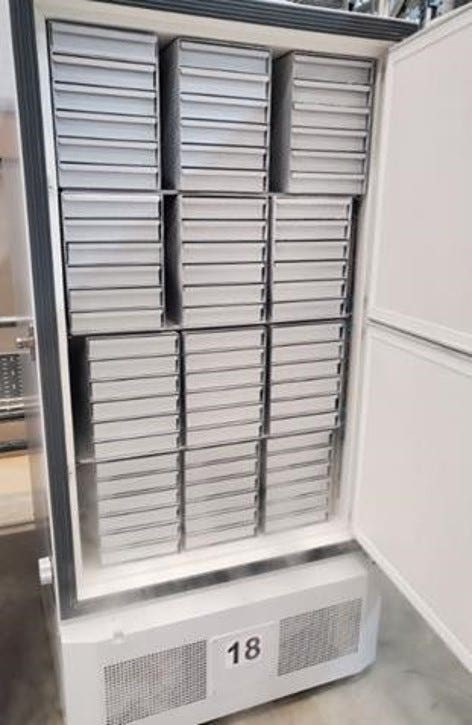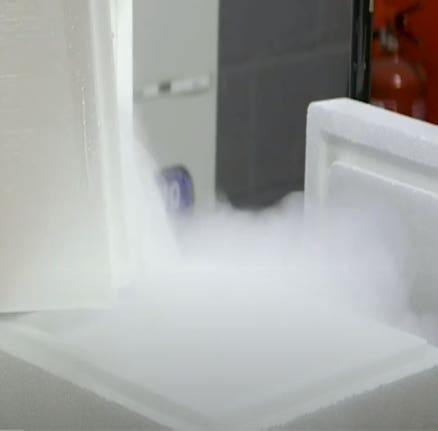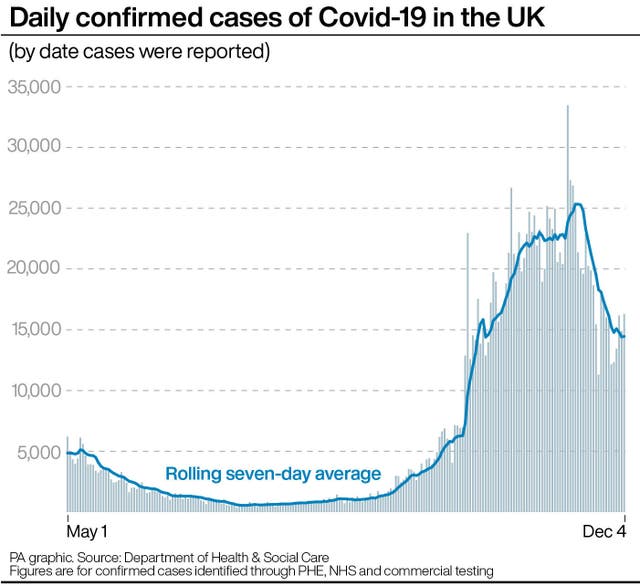First pictures released of specialist Covid-19 vaccine freezers in the UK
The images were issued by Public Health England and were taken at a secure location.

The first pictures have been released of freezers that will be packed with coronavirus vaccines in the UK, as each of the four nations prepares to start administering the jabs next week.
Images from Public Health England (PHE), taken at a secure location, show specialist Covid-19 vaccine freezers lined up which can each hold more than 80,000 doses.
A picture taken of the interior of one of the freezers shows stacks of trays which will hold the Pfizer/BioNTech doses.

The vaccine needs storage temperatures of minus 70C to minus 80C.
PHE said it has secured 58 specialised Twin Guard ultra-low temperature freezers which provide sufficient storage for approximately five million doses of potential Covid-19 vaccines which require ultra-low temperature storage.
The freezers are in the UK, fully operational, and located in national storage facilities in Britain and in Northern Ireland, in readiness for the start of a Covid-19 immunisation programme.
The freezers, which are not portable, each hold around 86,000 doses.
Preparations are under way to roll out the vaccine from as early as Tuesday in what has been described as “one of the greatest challenges the NHS has ever faced”.
The are a number of operational and logistical steps that need to happen before the vaccine can be administered to the public.
The distribution of vaccine across the UK is being undertaken by Public Health England and the NHS in England, Scotland, Wales and Northern Ireland through systems specially adapted from those used for the national immunisation programmes.
So far, Pfizer has dispatched initial volumes of vaccine from Belgium which has arrived at secure locations in the UK.

The Department of Health and Social Care (DHSC) said this is followed by a “post-delivery quality assurance process” to ensure the vaccine’s quality and integrity has been maintained through transit.
This process, which could take 12-24 hours, is carried out by the specialist medical logistics company, and relies upon information on the shipment temperature data being supplied by Pfizer.
Over the following few days, each box needs to be opened and unpacked manually, and temperature data has to be downloaded from each box, the DHSC said.
There are five packs of 975 doses per box, and only sites with the necessary MHRA licence can split the vaccine packs.

Once all checks are complete, the vaccine will be made available to order by authorised sites in the NHS, with around 50 sites in England so far.
The DHSC pointed out that delivering the Pfizer-BioNTech vaccine is complex due to it needing to be stored at very cold temperatures and moved carefully, so it will at first will be administered from hospital hubs.
Defrosting the vaccine takes a few hours and then additional time is required to prepare the vaccine for administering.
The DHSC said more than 1,000 local vaccination centres, operated by groups of GPs, will also come online shortly and these will be increased as more vaccines come into the country.
Stage one of the phased rollout of the vaccine will begin when it has been distributed.
“Once we get more vaccine and are able to split the large packs down, we will be able to do both bigger vaccination centres and smaller arrangements through local pharmacies,” the DHSC said.





